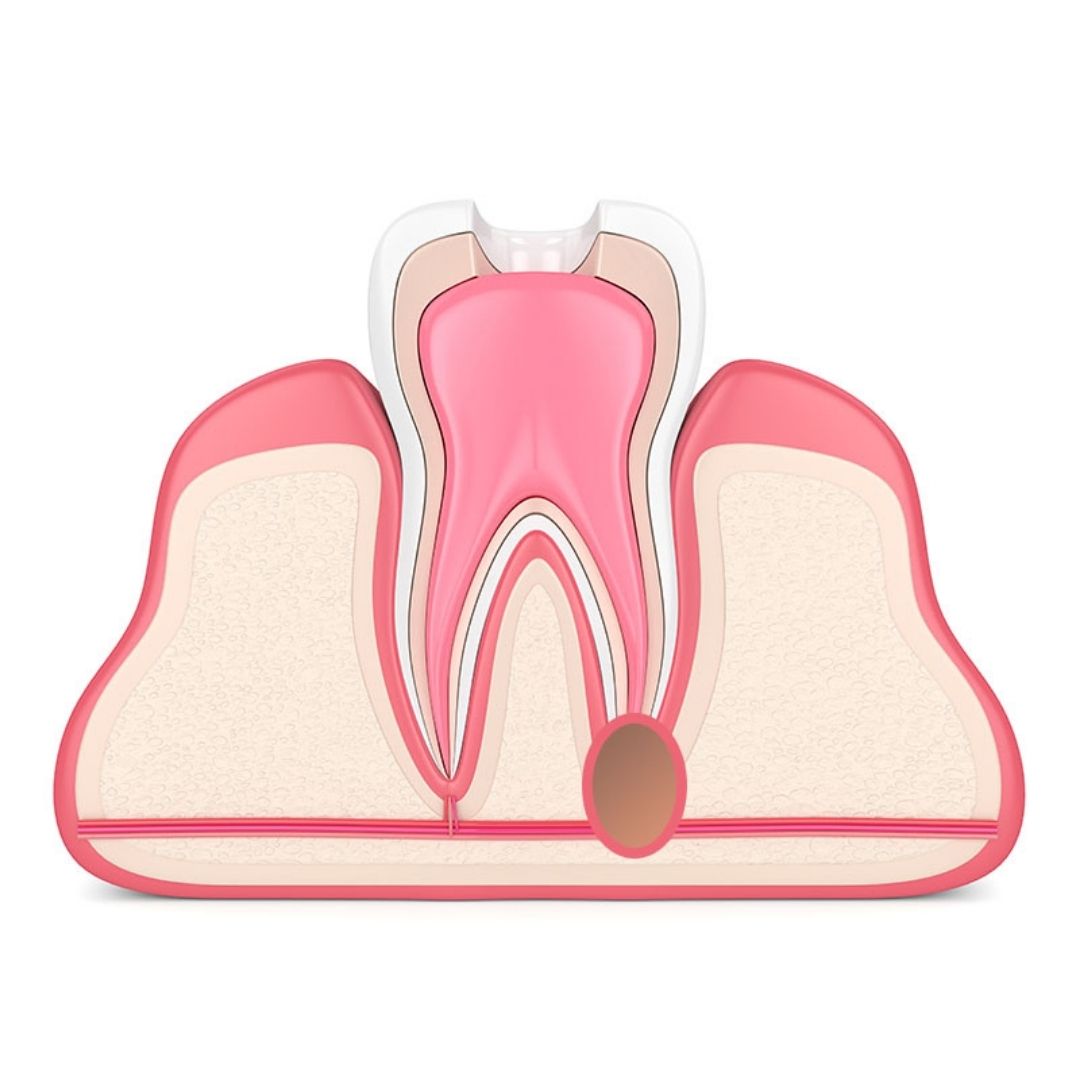Apicotomy is an oral surgical procedure in which the tip of the tooth root is removed or cut, most often due to chronic inflammation and fractures in the area of the tooth root.
Apicotomy is an oral surgical procedure in which the tip of the tooth root is removed or cut, most often due to chronic inflammation and fractures in the area of the tooth root.
Cysts, granulomas, and fistulas are terms that are commonly mentioned in dental medicine, and they are all related to the loss and destruction of healthy bone and the formation of granulation tissue.
Bacteria that are often present in lesions can reach the heart, kidney, joints, and other tissues and organs through the bloodstream and consequently cause complications.
In most cases, after endodontic treatment, the periapical process and inflammation decrease, but if this does not happen, an apicotomy is performed.
With the help of x-rays and a detailed clinical examination, our dentists will assess whether it is possible to save and keep the tooth by performing an apicotomy. Apicotomy is not indicated in severe cases of periodontitis, when the tooth is extremely loose or if the roots are surgically inaccessible.
The surgery is performed under local anesthesia, which means that it is completely painless. The procedure lasts about 30 to 60 minutes, depending on the tooth on which it is performed. The procedure takes the shortest on the front teeth, while on the lower molars it takes the longest due to difficult access. The root tip is removed using a small rotary instrument. After the tip of the root has been removed, it is cleaned and the granulation tissue and inflammation in the surrounding bone is removed. To prevent re-infection, the root canal is filled completely, and upon completion, the entire surgical field is disinfected and the incision is closed with a couple of stitches.

Dental nerve pain

X-ray

Procedure








